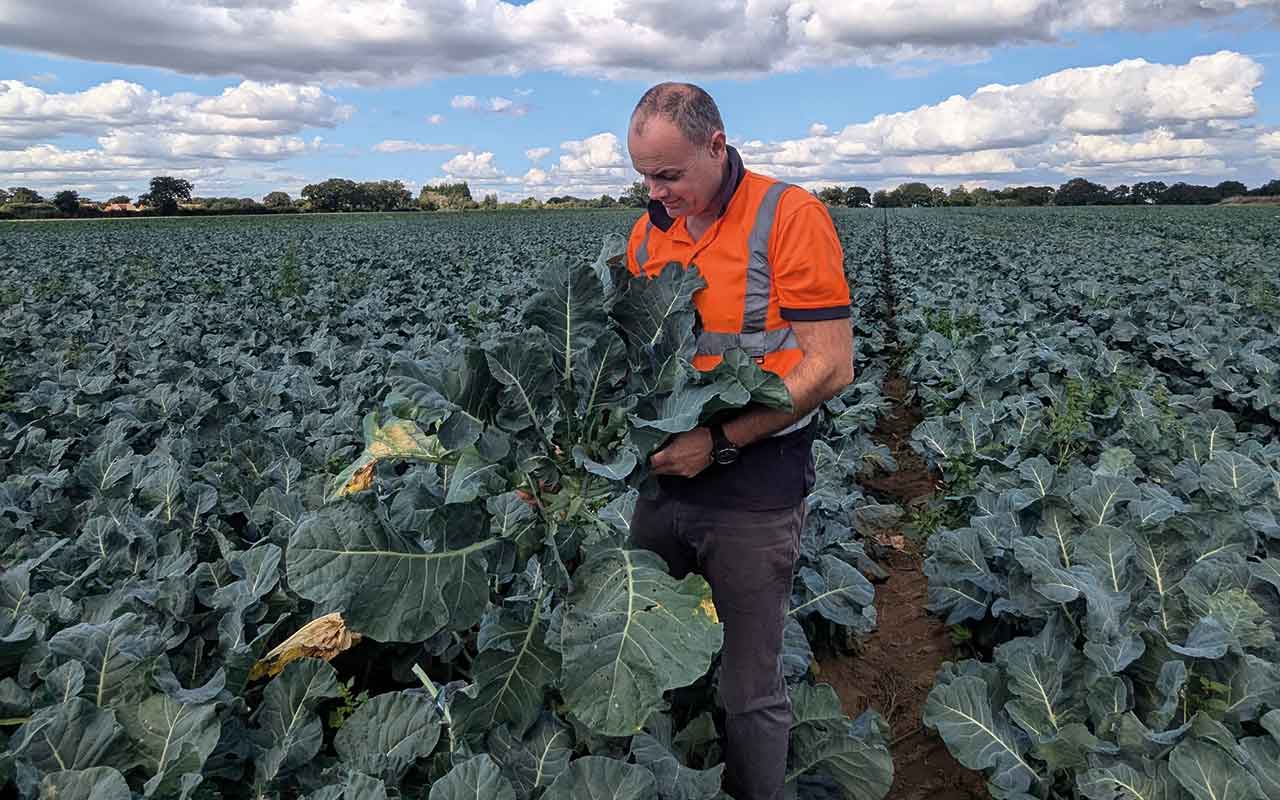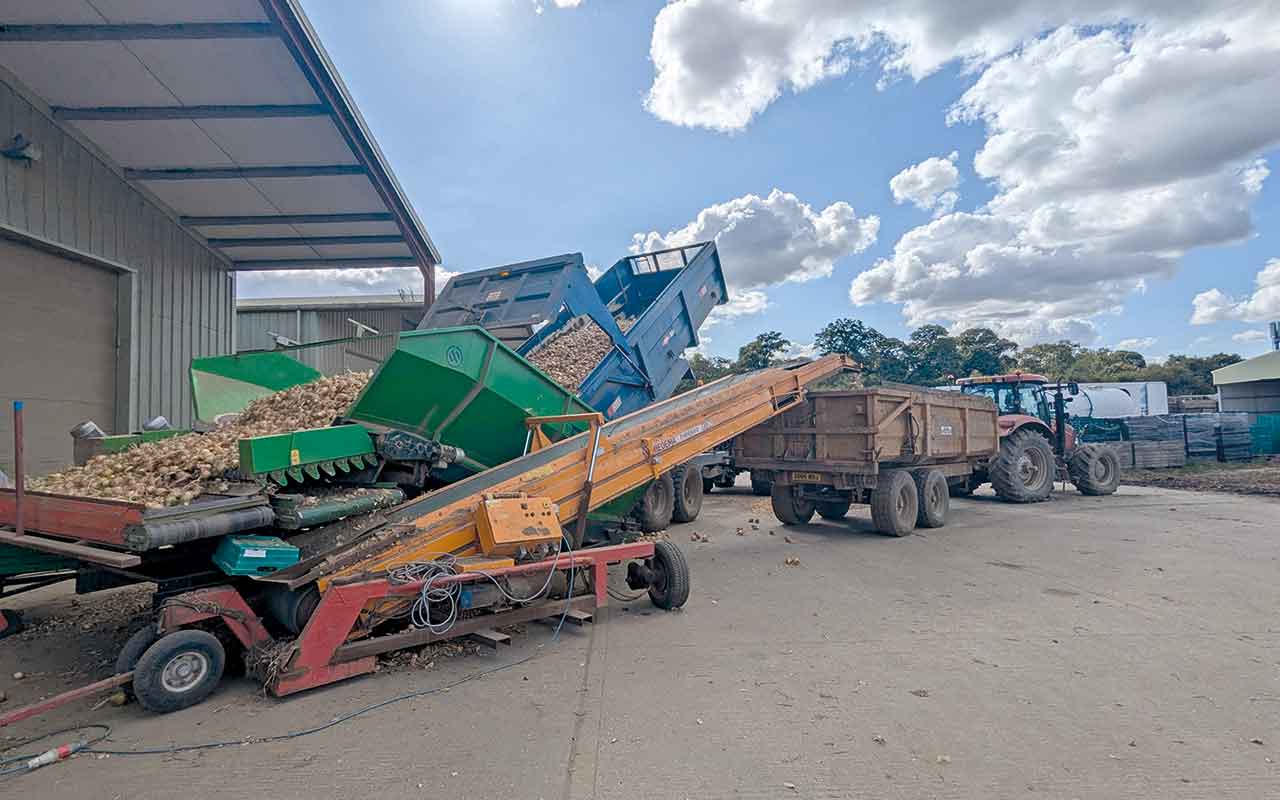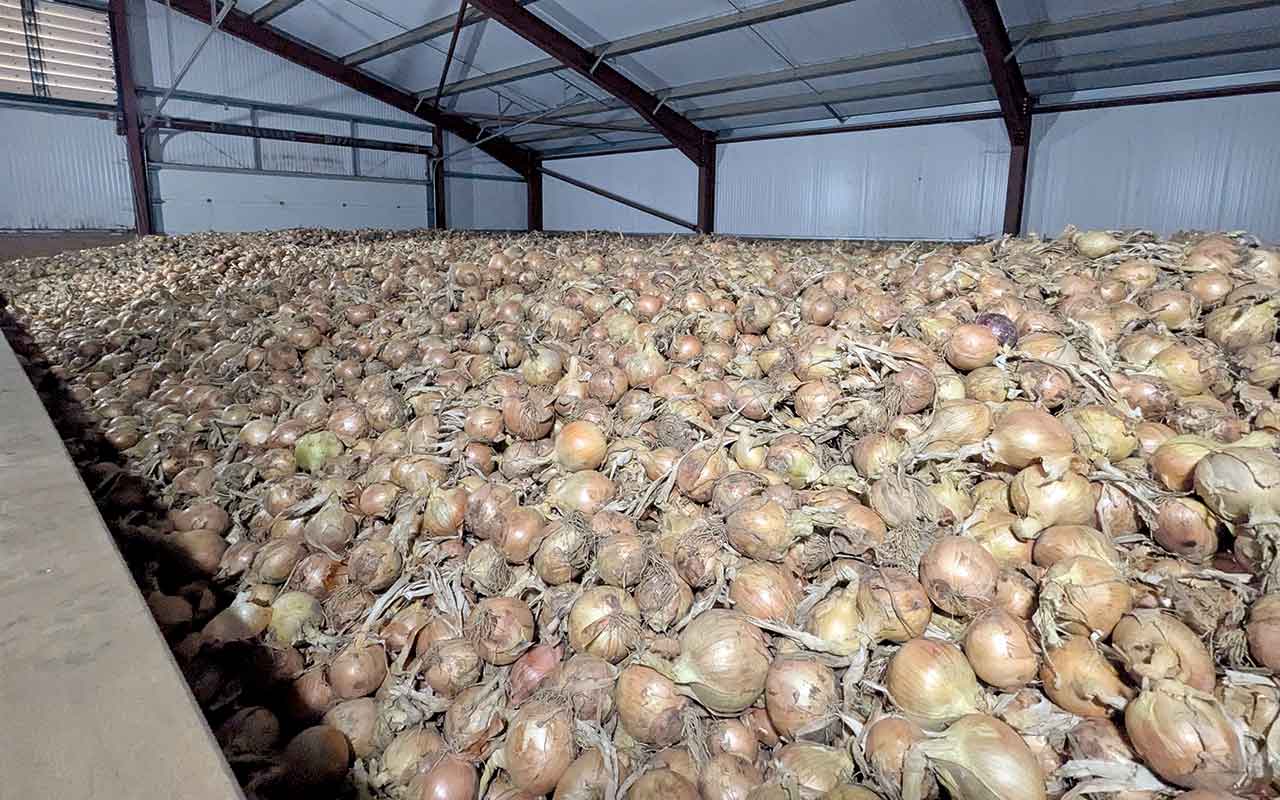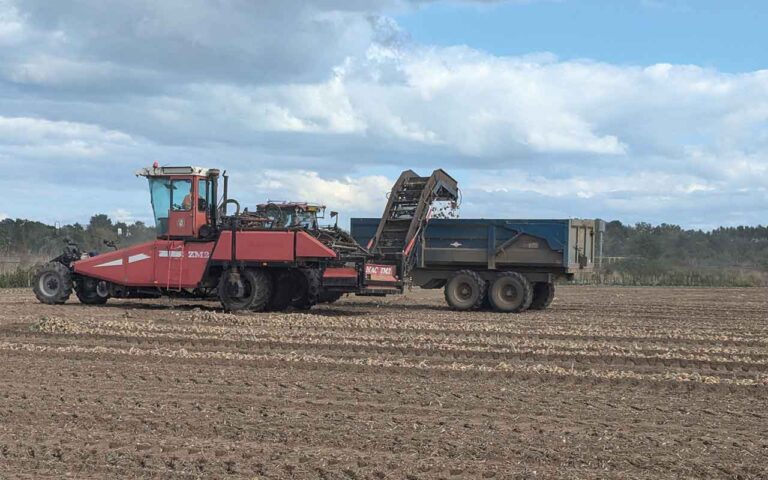While Home Farm Nacton won the Vegetable Grower of the Year category at the 2024 National Arable and Grassland Awards, much of its success has come from diversity, with a mix of crop types, organic and conventional income streams and a willingness to experiment.
Based near Ipswich, the company farms 1,500ha under various whole-farm contracts, with ground extending out to the coast.
This puts Home Farm Nacton in contact with a variety of landowners across the county, as well as with the supply chain for the multiple crop types.
According to managing director Andrew Francis, this creates an environment that encourages collaboration.
“We’re seeing the same issues that other agricultural businesses are seeing, including increased costs and difficulty finding labour,” he explains.
“But we’re seeing it on a large scale and across multiple farms and throughout the supply chain. Every grower and customer has a series of bespoke needs and we’re able to work together with them to find possible solutions.”

Major projects
This has seen the company take the lead on a series of major projects in recent years.
Perhaps the most substantial was the Felixstowe Hydrocycle Project, which saw the installation of an 11km pipeline from the Kingsfleet at the mouth of the River Deben back to Home Farm Nacton, with outlets at appropriate locations to fill reservoirs and provide irrigation water to local farms.
“There was concern that continued abstraction would damage the wetland habitats around us,” says farm manager Jason Smith.
“However, during periods of heavy rainfall, there were millions of litres of water being pumped out to sea. There was a clear opportunity there to rectify two potential issues by diverting this surplus.”
Andrew adds to this, saying that the business is driven by a quizzical nature.
“You must be curious about different things. The industry is moving in a lot of different directions, and all of these have to be balanced with food production. If you’re standing still, you end up going backwards.”

Based on need
Working across a diverse cropping rotation, with the added complications of organic produce, the business is always looking for new opportunities.
More than 26 crops are grown across the various farms, with onions and potatoes being the main crops, with sugar beet, cereals, vining peas, cabbages, broccoli, brussels sprouts and red beet.
This places pressure on the workforce and has led to various trials of new technologies to increase mechanisation.
Robotics have been integrated into the system, with a Robotti machine – which incorporates a three-point linkage to use with traditional implements – and a FarmDroid sowing and mechanical weeding unit both used on farm.
“Rather than take work from the staff, these machines help them to focus on other tasks. Work that requires a human touch, but which are not quite as labour-intensive as hand-rogueing the organic crops, for example,” Jason says.
Other projects include trailing spot-spraying systems, helping companies to develop the correct algorithms to differentiate between the crop and the weed. And while working on these projects, the business is keen to find solutions that work within its system.
Trials have been held for various cover crop mixes to improve soil health and organic matter at key times within the rotation. Important for Home Farm Nacton is something that is quick to grow, doing the maximum amount of good within the short windows between crops.
Similarly, there have been trials to see how biological products could boost yields and reduce pest and disease burdens in the organic crops.

Where there’s a market…
Produce from Home Farm Nacton is split between supermarket contracts, private customers using the vegetables to create products of their own (red beet is sold to James White Drinks for juicing), vegetable boxes and smaller market stalls.
Jason says they are approached regularly to ask whether they can grow a certain product, and if it fits into the rotation, they will try.
“Anything like that, we will trial in small plots. At the moment, we have kale and radicchio in the ground for private sellers,” Jason says.
The variety of crops being grown means there is nearly always something happening across the hectarage. On the day we visited, the farm was busy bringing onions into storage, with 1,000t of storage available on site, and another 4,000t nearby. As we toured some of the fields, several varieties were coming up to harvest.
“We’re at the point where we can be planting all through the year, and harvesting just as often,” Jason says. “It can be pretty overwhelming at times, but we have a good team of staff.”
The business has about 46 full-time employees, with a board of directors overseeing operations, and labour brought in for picking and packhouse work.
“Having a board in place has really helped to give the business structure,” Jason explains. “It isn’t how a lot of traditional farms would work, but it helps us to see the endgame for everything we’re doing and push the business in the direction where we have the scope to expand further.”
While 46 members of staff would seem huge for many farms across the country, the business still finds bottlenecks and recognises the difficulties in finding new workers to come on board. It works closely with agricultural colleges to bring two apprentices each year, some of whom stay on.
Maintaining the fleet
Everything at Home Farm Nacton is done in house, meaning it has a substantial machinery fleet. Over 20 Case IH tractors are on farm, most of which are in the Puma range.
“Keeping to the same brand gives us that familiarity,” Jason explains. “Staff have to move from task to task regularly, so the fact that they can jump into a different tractor and find the same control scheme is really helpful.”
For more intensive cultivation work, the farm also uses a Fendt 900 Vario tractor. While the business is looking towards sustainable practices and options within the Sustainable Farming Incentive (SFI), deep cultivations and ploughing are still regular operations.
“We have such a broad range of crops that we have to plough to break that disease and pest bridge,” Jason says. “Not only that, but with the organics, we have a significantly reduced toolbox of options, so the plough is a key part of that.”
Tractors are upgraded on a rotational basis, with two or three being changed each year to keep maintenance costs down. This means that some machines will stay on the farm for upwards of 10 years. Other key machines, such as the combine, sprayer and various harvesters, will be changed every five years.
That’s not to say there isn’t some classic equipment on farm. With a lack of automated lifting equipment for onions, the business still uses a decades-old VSS Amac ZM2 self-propelled onion harvester, as well as a Baekelandt tractor-mounted leek harvester.
“Like with most parts of the business, the machinery spend is based on need,” Jason says. “We can maintain older, operational machinery where we need to, but if there are solutions on the market, we try to keep the kit up to date.”
In line with the aim to mechanise more intensive operations, the firm is now looking at harvesters to work in cauliflower and broccoli crops, with technology to automatically break the crop up into florets to limits the handling.
Continuing to build
Jason notes that the farm has the capacity to take on more ground. “One of the nice things about our position and reputation is that we are now often approached and asked to tender for ground. It shows that we’re doing something right.”
While there are limits to what the business can do around cultivations, it is also working to boost sustainability.
As well as securing a water source, without affecting habitats, Home Farm Nacton has also invested in solar panels on its sites to cut down on energy use. With the cover crop trials and other work being done, Jason is also sure the SFI will play a role in future.
“It needs to be looked at, not just because of the possible financial gain, but because of the environmental good it can do. We work our soils hard, so we’re keen to find solutions to improve soil health and resiliency. However, our business is based around providing food, and we shouldn’t forget that.”

2025 National Arable and Grassland Awards
Read about all the nominees and buy tickets to the awards night online.


